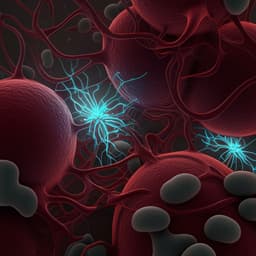
Agriculture
Agrobacterium expressing a type III secretion system delivers Pseudomonas effectors into plant cells to enhance transformation
V. Raman, C. M. Rojas, et al.
This groundbreaking research conducted by Vidhyavathi Raman, Clemencia M. Rojas, and their team engineered Agrobacterium tumefaciens to enhance plant transformation efficiency significantly. By incorporating a type III secretion system, they achieved remarkable increases in the transformation of wheat, alfalfa, and switchgrass, along with successful delivery of plant proteins, paving the way for advancements in agricultural biotechnology.
Related Publications
Explore these studies to deepen your understanding of the subject.







